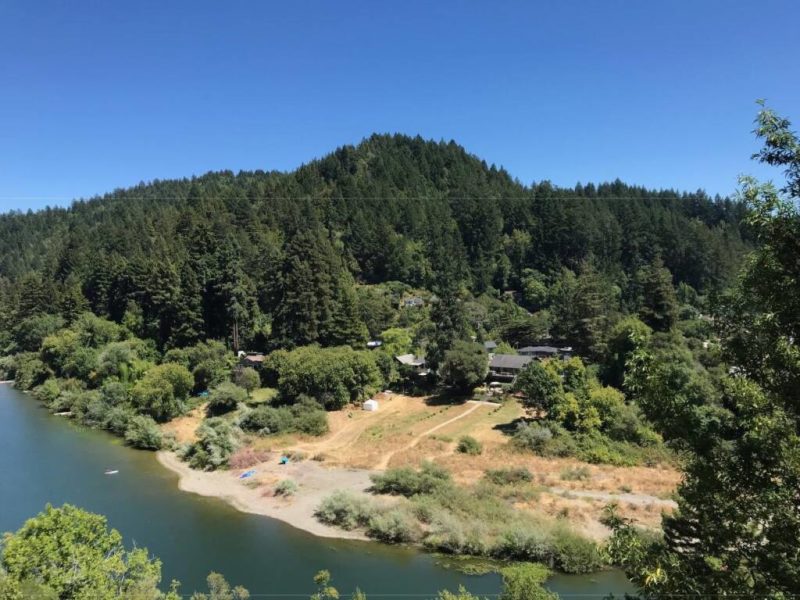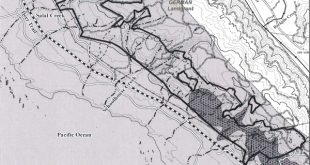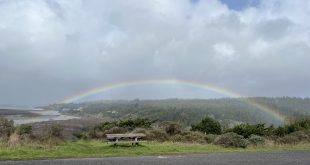by John Dunlap, member of the Guerneville Forest Coalition
This op-ed was published in the Santa Rosa Press Democrat on March 7, 2021
Reprinted with permission of the author
A plan to log 224 acres of redwood and Douglas fir trees along the Russian River in Guerneville is just one of several timber harvests proposed or scheduled to take place this year in Sonoma and Mendocino counties.
The Guerneville project is small in comparison to most, but noticeable in its proximity to hundreds of homes. Ninety-six percent of the plan area is within the Highway 116 scenic corridor. The site is home to the tallest tree on private property in the world — the 2,000-year-old Clar tree — and a pair of rare and endangered northern spotted owls. The location along the river and on steep terrain is alarming for those who monitor water quality and landslide risk.

Given all this, it’s not surprising that the plan has caused consternation. At the close of public comment on Jan. 14, some 300 letters had been received by the California Department of Forestry and Fire Protection, better known as Cal Fire.
But what has been most eye opening is the way in which the agency has shepherded the plan through the review process.
The Forest Practice Act of 197[3] regulates logging on privately owned land in California. It requires timber companies to submit a timber harvest plan, which is meant to be the equivalent of an environmental impact review. This means the company is responsible for explaining how logging might impact the environment. Does this seem like the fox is in charge of the henhouse?
The public is entitled to comment and to written responses to those comments. In some counties (but not Sonoma), the Board of Supervisors can request a public hearing.
What has happened with the Guerneville plan, while undoubtedly par for the course, shows a shocking disrespect for public due process.
|
A slew of changes, both big and small, were made to the timber harvest plan over the course of seven months. The revisions were neither categorized nor indexed. They appeared in numerous memos and letters from the forester to one agency or another, uploaded to a clunky website and scattered among the 300-plus online public comments.
For anyone following the process, the plan becomes a moving target. Page numbers change as sections are added and subtracted. New items get posted, forcing commentators to revise their comments to maintain their pertinence. Talk about not being able to see the forest for the trees. Good luck even finding the timber harvest plan online, let alone any changes (clue: you won’t find it on the Cal Fire website).
The Guerneville Forest Coalition has written dozens of letters asking for clarification. Not one letter has received a response from Cal Fire. To make matters worse, the second interagency review meeting was open to the public, but members of the public were prohibited from asking questions or making statements. The meeting lasted all of 20 minutes.
To quote the California Supreme Court: “It seems to be widely recognized that few, if any, industries adversely affect the rights of others and the public generally, as do the timber and logging operations.” Then why is it made so hard for the public to see what’s going on?
The Forest Practice Act needs to be overhauled. Our representatives in Sacramento need to listen to those who elected them and stop kowtowing to the powerful timber lobby. Cal Fire needs to focus on what it’s good at (fighting fires) and hand responsibility for forest management to an independent agency that respects all points of view.
 Friends of Gualala River Protecting the Gualala River watershed and the species living within it
Friends of Gualala River Protecting the Gualala River watershed and the species living within it


